100th Anniversary Great Nave Tour at the Cathedral of St. John the Divine
Celebrate the 1925 construction of the stunning nave inside the world's largest Gothic cathedral!


New York State is home to some of the most beautiful mansions in our country. One estate in particular, Lyndhurst Mansion, is known as a fantastic tourist destination, a perfect filming location, and the spot where “the Hudson Valley begins.”
Lyndhurst Mansion has been a sight to see since it was built for Tarrytown native and former Mayor of New York City William S. Paulding Jr. in 1838. Paulding enjoyed his retirement at the mansion, using it as a country summer villa. The owner mostly popularly associated with the home however is Jay Gould, a railroad tycoon and millionaire who purchased the property in 1880. After the deaths of Gould and his wife, ownership of the home fell to their daughter, Helen Gould. Helen immediately began remodeling the home, adding new buildings and facilities to the property. The young philanthropist erected a sewing school for local girls, a cooking school for boys, and an educational space for the mansion’s staff.
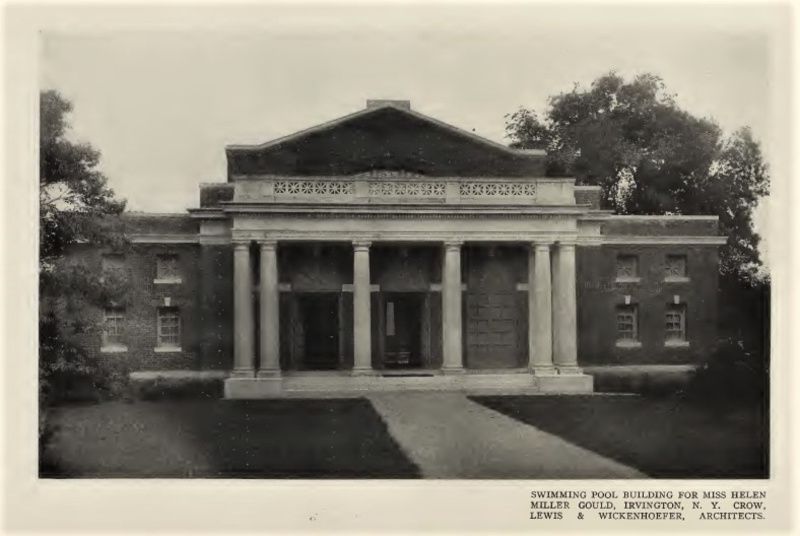
Among the innovations added by Helen was a pool house, constructed in 1911. It was 140 by 60 feet, created in the style of an ancient Roman bath. This pool certainly became the talk of the town. Helen opened the pool up for those in the community to enjoy, particularly young local girls.
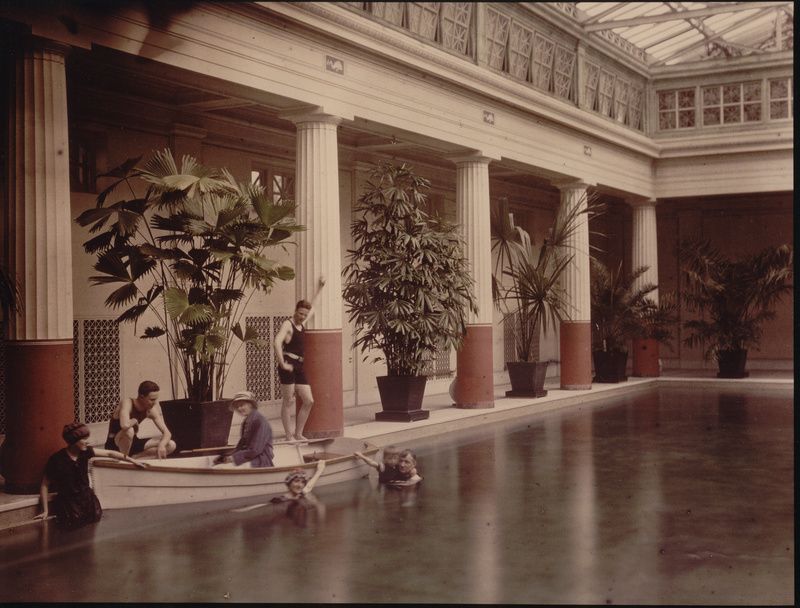
Helen continuously pushed for the independence of women and was set on using the mansion and her fortune to support that cause. This pool provided a safe place for local girls to swim, an activity previously not open to them. Girls weren’t the only minority she wanted to bring the joy of bathing to. Helen’s plan was to bring less fortunate children from the city to the mansion and give them the opportunity to enjoy the pool. She hired a swimming instructor and soon opened the pool up for young boys in the area as well.
Aside from the utility of the pool, the building itself is grand and gorgeous. The outside has massive columns, French doors, and large fan lights. There is an entry hall at its front with dressing rooms in the wings. The walls are full of detailed plasterwork and tile. The pool area is massive, sizing 70 by 35 feet. Doric columns are featured, calling back to Greek and Roman influence.
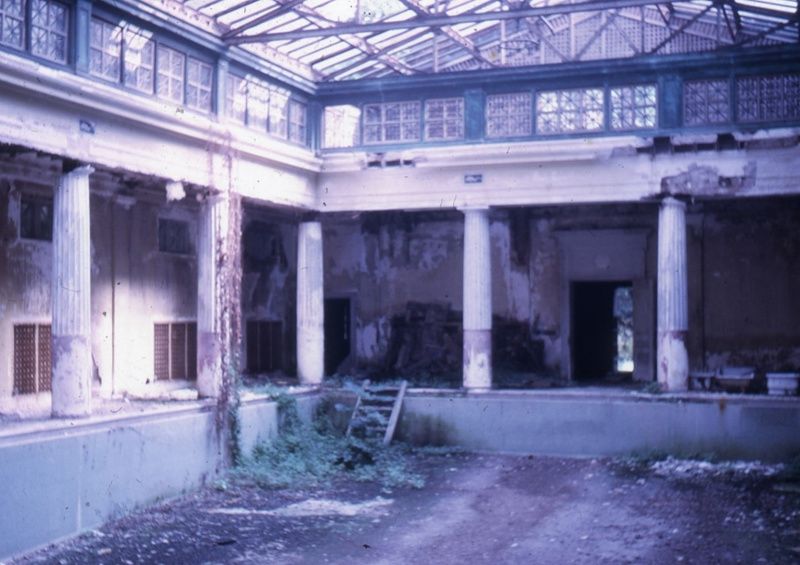
At some point past the 1920s, public access to the pool closed and it was limited to family use. Upon Helen’s passing in December 1938, the pool was shuttered. Ownership of the mansion went to her sister, Anna, but upon Anna’s passing, The National Trust for Historic Preservation gained ownership of the property.
For the first time in 20 years, photographs were revealed of the pool building. The glass roof was destroyed, trees were hanging through the ceiling, and erosion was taking over. The National Trust started stabilization work in the 1980s. Rehabilitation stopped at that point because there was no practical use for the building.
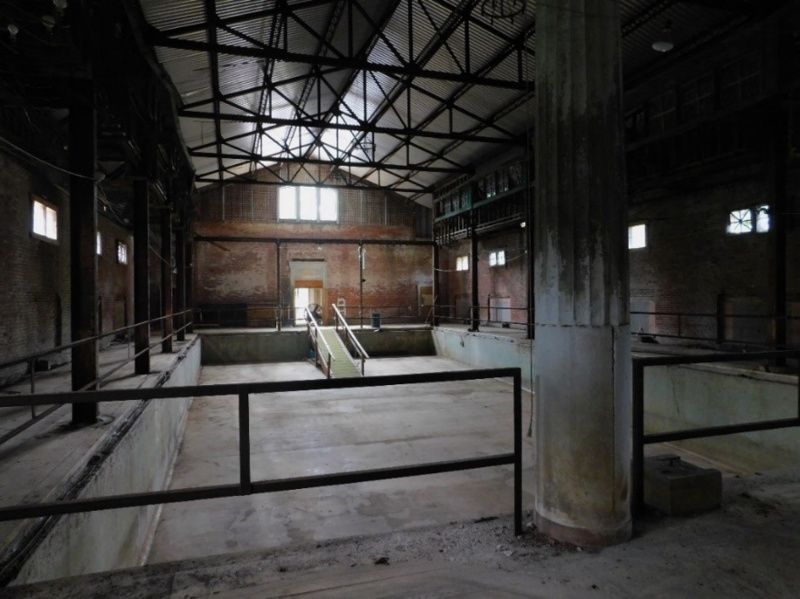
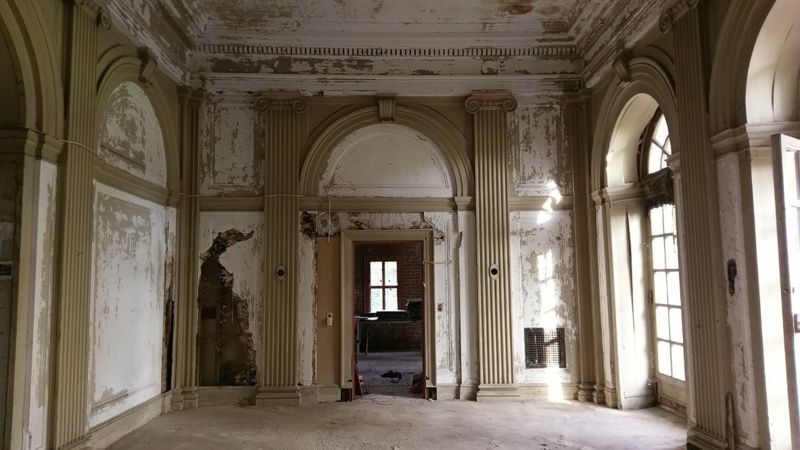
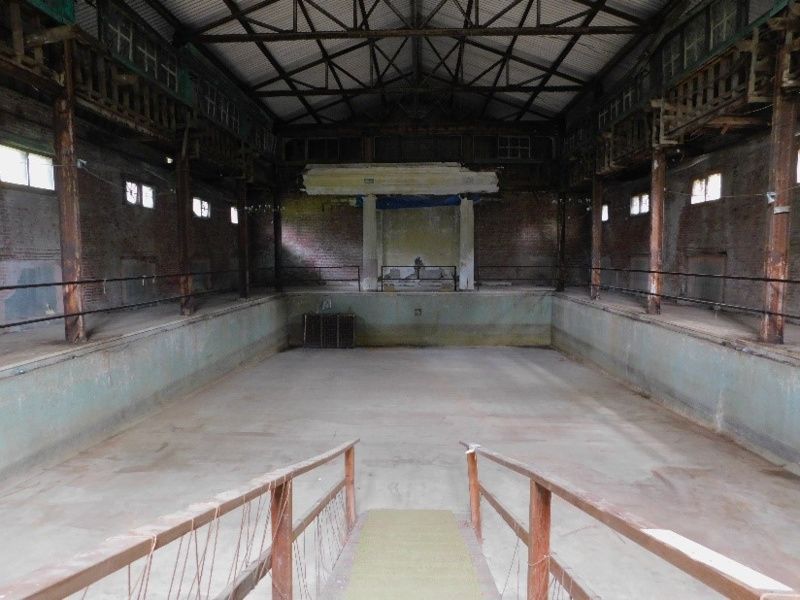
In 2017, however, Lyndhurst staff decided to try once again to revive the historic structure. After a cleaning and various assessments, leaks were fixed and safety features were added. At this point the building was safe enough for visitors to tour and enjoy.
As of recently, the mansion has been awarded a $750,000 Save America Treasures Grant. This grant will stabilize and preserve the iconic swimming pool building and return it to its intended use as a community resource. The hall will be used as a joint art exhibit and performance area open to the public, with a welcome center to accommodate the increase in visitors to the property.
For the pool, there are plans to restore the exterior and roof, repair the entry room walls and floors, return original wooden furniture, and much more. On a larger scale, the property wants to improve the north side buildings and grounds, as well as the rose and perennial gardens.
The grant is part of a 4.5 million dollar funding effort to restore the entire property, ensuring that its beauty can be enjoyed by visitors for years to come.
Next, check out 30 Hudson Valley Estates to Visit
Subscribe to our newsletter